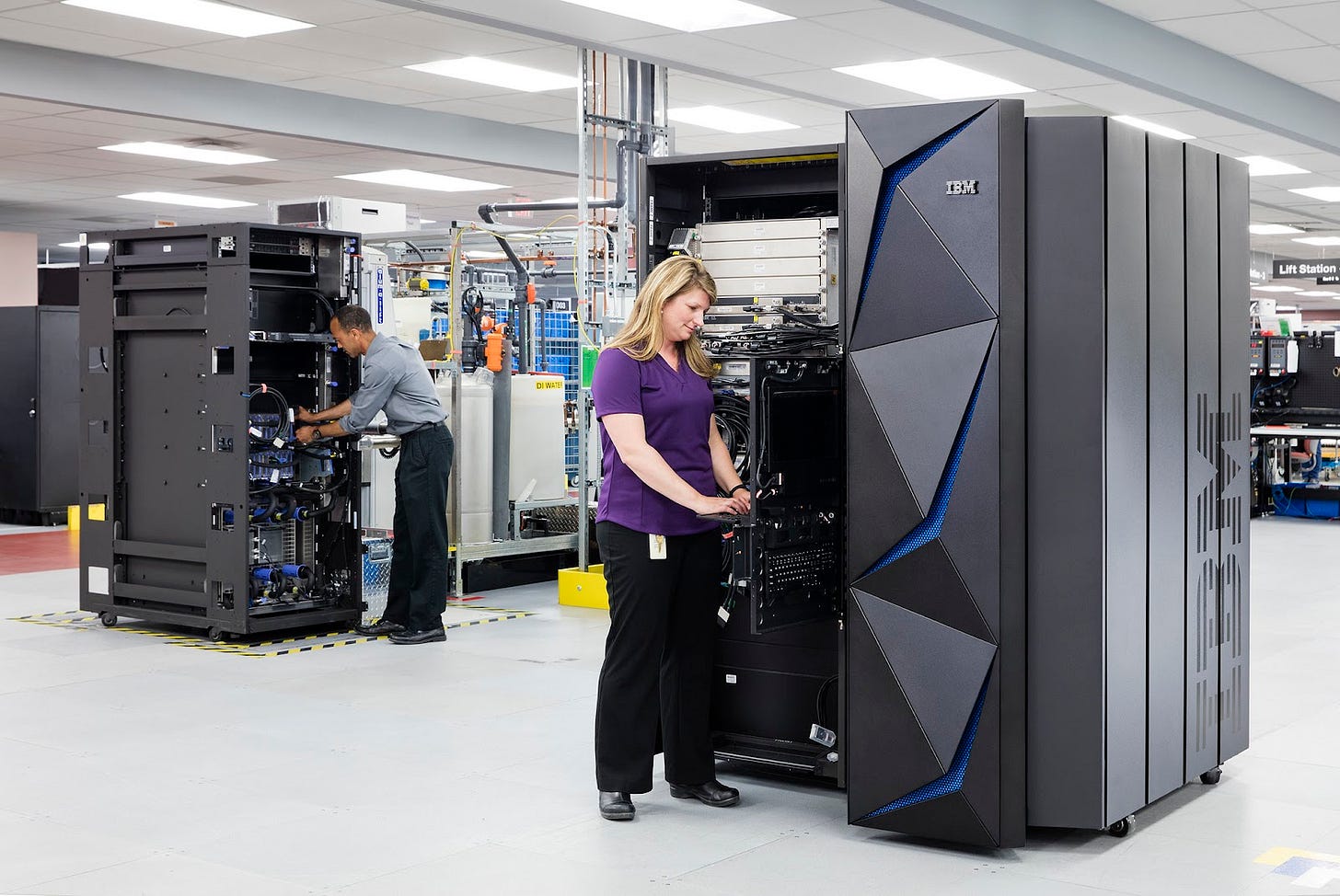IBM Still Provides Institutionally Load-Bearing Computers
The company sells computer hardware and software consulting to large bureaucratic organizations. Despite emphasizing cloud computing and AI, their business model is unlikely to change.

IBM is the world’s oldest major software company. With roots dating back to 1911 and nearly 300,000 full-time employees, it is still larger by headcount than Microsoft, Apple, or Google.1 As of January 2024, IBM has a market capitalization of around $150 billion.2 But IBM is long past its peak of technological and financial relevance. In 1967, IBM was the most valuable company in the world, with an inflation-adjusted value of $1.3 trillion, and its mainframes—large computers used for bulk data processing—were the dominant computer system worldwide.3 The company’s 2023 revenue of $62 billion is significantly down from its 2011 peak of $107 billion.4 This drop is primarily the result of declining demand for IBM’s core service of providing and maintaining computer infrastructure for large organizations, in the face of rising demand for “cloud computing” i.e. renting data storage and computing power as needed from companies like Amazon or Microsoft. IBM nevertheless retains a difficult-to-dislodge position in the global economy due to the breadth of services it provides and the inability of most organizations to construct their own computer infrastructure. IBM sells to companies and bureaucracies, not individual consumers.

